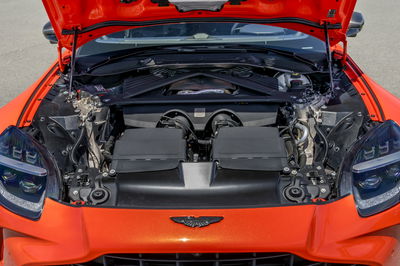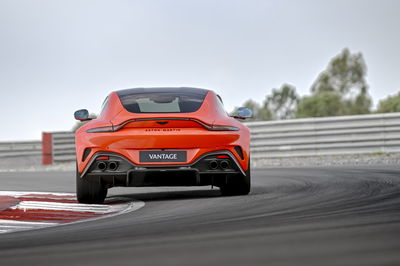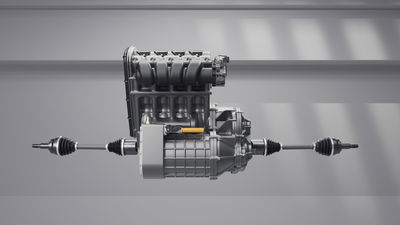Aston Martin To Stick With Big Engines, Because That's What People Want

A few years ago, it was inconceivable that Aston Martin might one day announce an all-new V12 engine, while also pledging to continue making V8s long into the future. And yet, here we are - a brand, spanking V12 for the DBS Superleggera’s replacement has been confirmed, and V8s are very much here to stay.
It’s a big shift when in 2020 there was talk of the new, in-house developed ‘TM01’ V6 replacing the Mercedes-AMG-sourced V8 used in various models, but since then, the V6 project has been killed off. So the question we pose to Product and Market Strategy boss Alex Long, is why?
It’s a question of what supercar buyers are now after, Long says. They aren’t just interested in “attributes,” but also that “the methodology and V8s have a true emotional connection as do V12s…in a way that perhaps V6 doesn’t yet”. And that’s despite a slew of recent V6-powered supercars and the presence of V6s in F1 in recent years.

Long adds: “It's not just about going as fast as I can. I do want some emotion on the way, I want some real sound and rumble, and I want to know and think and say it's a V8 or a V12 because V8s [and] V12s have generally been reserved for very special and interesting products whereas V6s very much aren't in the premium segment.”
Long also notes that after the pandemic, the car world has seen “a real resurgence for V8,” which he attributes to the “use case” for customers. “These cars don't cut the mileages … it's often not the only car in the household,” he says, adding, “So there are very many Aston customers who will also own an electric car in n the household but they'll want still sound, noise, vibration and so on from a supercar that’s a V8.”

At the same time, big technological leaps have made V8s like the one in the 2024 Aston Martin Vantage more feasible despite tougher emissions regulations. Helping the V8s cause is “the tech that's gone in and the investment that’s gone into this latest gen [of AMG V8], the emissions compliance. cyber compliance, all the things you have to do.”
“At a time when we're going electric in the industry, we are at a phenomenal point in the sophistication of the combustion engine…nearly 200 PS per litre…these fantastic engines.”

Hall admits, though, that it’s tricky to work out exactly where to focus a company’s energies. “This time is very difficult because electric…it's on you then it's sort of drifting sort of slightly backwards and then hybrids come in and [you wonder] ‘is that the answer?’ There's a lot going on in terms of placing your bets on your technology.”
For Aston, a large part of that involves sticking big, rumbly engines in its cars. Long may it continue.















Comments
No comments found.